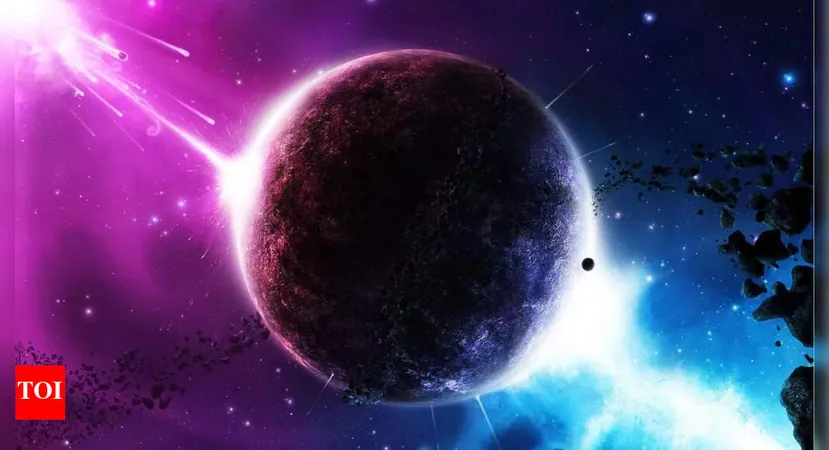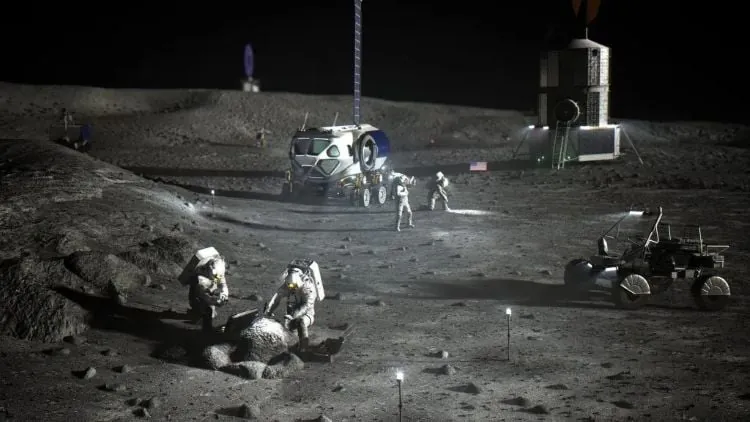
Scientists Unveil the Universe's First Molecule After 13 Billion Years!
2025-08-04
Author: Rajesh
Incredible Breakthrough in Cosmic Chemistry!
In an astounding discovery, scientists at Germany's Max Planck Institute for Nuclear Physics have successfully recreated the universe's very first molecule, helium hydride ion (HeH⁺). This monumental experiment thrusts us back 13 billion years, mimicking conditions just after the Big Bang and shedding light on how stars were born!
Why the Universe's First Molecule Matters!
Helium hydride may be simple, but it's a cosmic heavyweight! Formed from a helium atom and a positively charged hydrogen nucleus, HeH⁺ emerged around 380,000 years after the Big Bang. Although this molecule was short-lived, it played an instrumental role in cooling primordial gas clouds, paving the way for the gravitational collapse crucial for star formation. Without these early agents, the birth of stars and galaxies might have been dramatically delayed or altered!
How Scientists Resurrected Early Universe Conditions!
Crafting ancient cosmic conditions wasn't easy. Researchers employed the Cryogenic Storage Ring in Heidelberg—a 35-meter marvel designed for ultra-cold, vacuum-controlled experiments. They introduced HeH⁺ ions and bombarded them with a beam of neutral deuterium atoms, closely mimicking the molecular chemistry that formed hydrogen (H₂), the universe's most abundant molecule.
An Unexpected Twist in Molecular Reactions!
The findings were nothing short of revolutionary! Contrary to previous predictions that reactions would slow down at near-zero temperatures, scientists found the reaction remarkably efficient. This challenges established theories, suggesting HeH⁺ played a crucial role in cooling early cosmic gas clouds, more significant than previously believed.
The Cosmic Dark Ages: Rewritten!
After the universe cooled, it entered a dark phase with no stars or visible light. Yet, molecular reactions like those of HeH⁺ with hydrogen were key to shaping the cosmos. This study suggests that HeH⁺ was active longer than earlier theories indicated, laying vital groundwork for the formation of star systems.
Wider Implications for Cosmic Understanding!
This groundbreaking research extends beyond just HeH⁺. It enhances our understanding of how molecular hydrogen and its isotopes formed, catalyzing the birth of the first stars and galaxies. This is critical for refining astrophysical models, illuminating the chemical evolution of the universe, and unraveling how the universe transformed from chaos into structured beauty.
A Giant Leap Toward Unraveling Cosmic Mysteries!
By successfully recreating this primordial reaction, researchers have taken a significant stride in astrochemistry and cosmology. This breakthrough illustrates how we can reconstruct moments from the universe's infancy right in our labs, edging us closer to unlocking the secrets of matter's evolution and the origins of the first shining stars amid the cosmic darkness!



 Brasil (PT)
Brasil (PT)
 Canada (EN)
Canada (EN)
 Chile (ES)
Chile (ES)
 Česko (CS)
Česko (CS)
 대한민국 (KO)
대한민국 (KO)
 España (ES)
España (ES)
 France (FR)
France (FR)
 Hong Kong (EN)
Hong Kong (EN)
 Italia (IT)
Italia (IT)
 日本 (JA)
日本 (JA)
 Magyarország (HU)
Magyarország (HU)
 Norge (NO)
Norge (NO)
 Polska (PL)
Polska (PL)
 Schweiz (DE)
Schweiz (DE)
 Singapore (EN)
Singapore (EN)
 Sverige (SV)
Sverige (SV)
 Suomi (FI)
Suomi (FI)
 Türkiye (TR)
Türkiye (TR)
 الإمارات العربية المتحدة (AR)
الإمارات العربية المتحدة (AR)